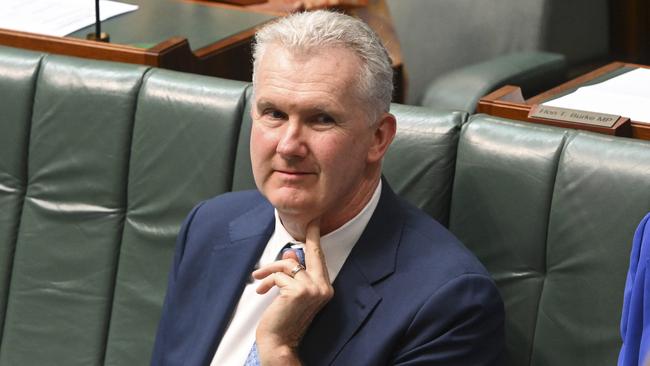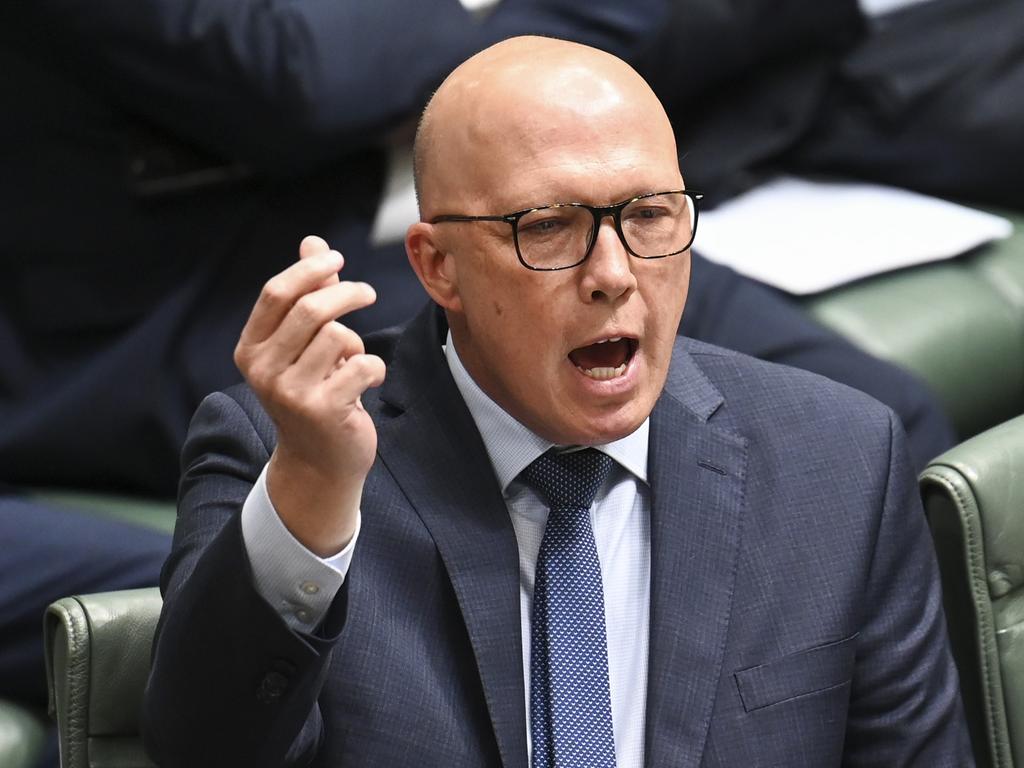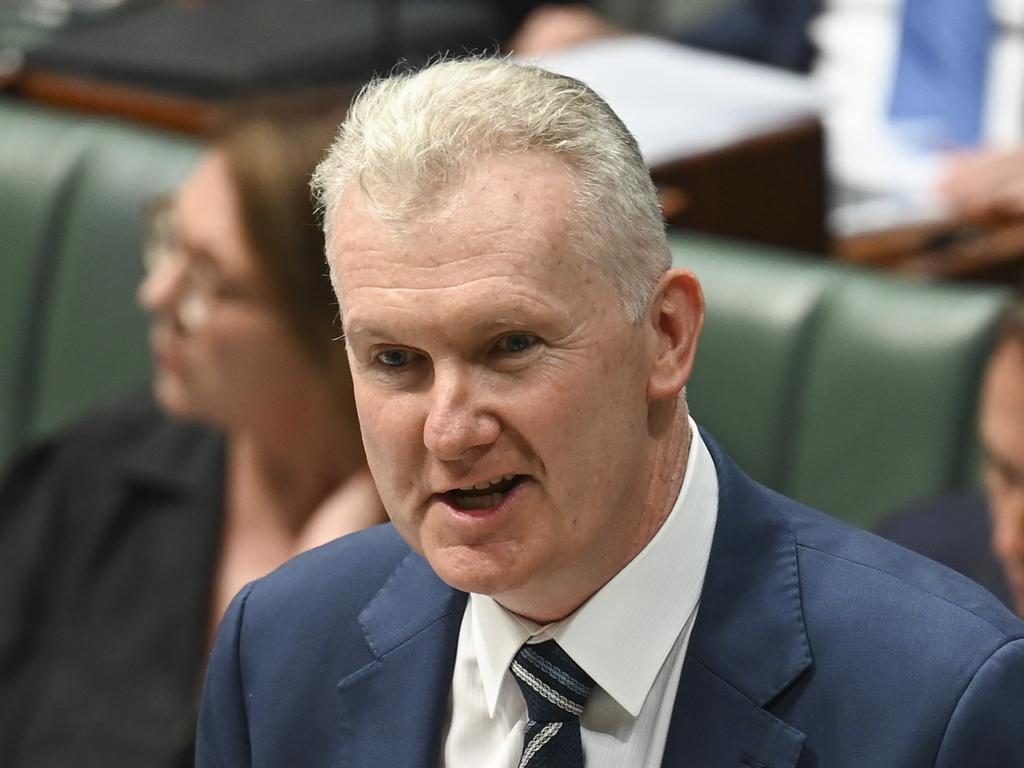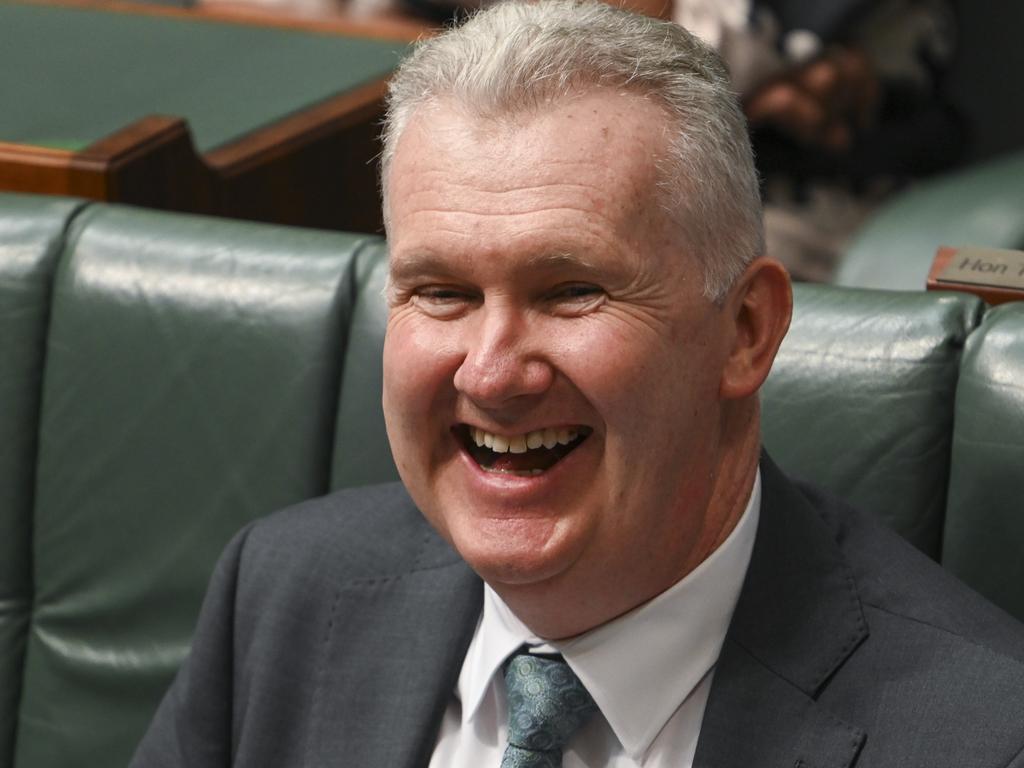New union push for job security clauses
A major union will press employers to accept new clauses to lift labour hire pay, sparking fears of ‘pattern bargaining by stealth’.

A major union will press employers to accept new job security clauses to lift the pay of labour hire workers across the construction and resources sectors, sparking employer warnings that Labor’s new industrial relations laws are being used to spread “pattern bargaining by stealth”.
As business denounced the laws as a “productivity-sapping virus”, the Electrical Trades Union warned employers should cave in and accept the clauses in new pay deals or face Fair Work Commission action when the same-job, same-pay applications became operational this year.
ETU national secretary Michael Wright said the extensive use of labour hire by employers was akin to “corporate avoidance of the Fair Work Act”, and the union would be going “full bore” to ensure labour hire workers were paid no less favourably than directly employed workers working alongside them.
Mr Wright said the basic principle underpinning employment security clauses was “if the union and employer do a deal that pays rate of pay X then the agreement can also say any supplemental labour via labour hire will also be paid that rate”.
“Employment security clauses are going to be front and centre in all our bargaining,” he told The Australian.
“But even if we can’t get it in bargaining, we’ll be seeking it via the commission by same-job, same-pay orders.
“That’s the plan. That’s how we get back to having good, secure careers in our sectors instead of what we have seen over the last decade which has been this race to the bottom of the labour hire merry go round.”
Australian Industry Group chief executive Innes Willox said employers had warned the same-job, same-pay laws, which come into operation in November, “would be a slow burn”.
“It’s now a productivity-sapping virus spreading across the economy into areas such as aged care, child care, mining, education and now energy,” he said.
“This has a long way to play out but is already becoming another deep risk for employers.
“This is pattern bargaining by stealth.”
Minerals Council of Australia chief executive Tania Constable said “every business across Australia is now at the mercy of the unions, aided and fully sanctioned by the Albanese government”.
“At the end of the day we will see fewer businesses and fewer projects, which means fewer jobs,” she said.
ACTU secretary Sally McManus said unions wanted to see Australian workers having greater job security.
“For well over a decade we have known that job insecurity be it casual, fixed term, contract or gig work has been a problem,” she said.
“Australia has one of the highest rates of insecure work of this type in the OECD.
“We want this to turn around and the new laws have closed the loopholes that allowed it to spread.”

The new laws will allow employees, unions and host employers to apply to the commission for an order that labour hire employees must be paid at least what they would receive under a host’s enterprise agreement or equivalent public sector determination.
The commission can only make an order if satisfied the host’s enterprise agreement would apply to the labour hire worker if they were directly employed.
While labour hire had a legitimate role in meeting peak demand, Mr Wright said labour hire had become a default form of employment for many companies.
“I have head contractors tell me to my face, ‘we don’t care what rate of pay you put in this agreement because we’ll just get labour hire’,” he said.
“It means you are not actually bargaining and any time labour hire comes on to site and we start trying to represent our members, they just switch labour hire companies.
“They treat it like a game, moving these people around like their chips on a board.
“The human cost of that is workers can’t get mortgages, they can’t have us bargain for them.”
Mr Wright said the new laws made it easier for unions to secure employment security clauses “because the employers will look at it, and go, ‘well, stuff it, if we don’t agree here, they’re just going to take us to the commission and get it there’,” he said.
“What that does is remove the incentive.
“You see ads on Seek all the time for sparkies in the northwest on $38 an hour when the going rate is over $50 an hour but people take that job because they think it gets them a foot in the door.
“Sometimes it does and sometimes they find themselves stuck on the merry-go-round where they are stuck in low-paid, insecure employment.”
Mr Wright said the union would be targeting employers across the country in utility scale solar, construction and the resources sector. “We are going through an industrial revolution as we move off fossil fuels and on to renewables and, unfortunately, in utility scale solar, this industrial revolution is starting to look a bit like the first one.” he said.
“It’s a new industry. We would have hoped that they were trying to set a high bar for labour standards but instead we’ve been seeing the race to the bottom where they are just pulling in labour hire sparkies from all over the place in lieu of providing opportunities to give them direct and ongoing employment, ensuring that creates a pathway of upskilling tradespeople who will be able to build out the next 24 years of this energy transition.”








To join the conversation, please log in. Don't have an account? Register
Join the conversation, you are commenting as Logout